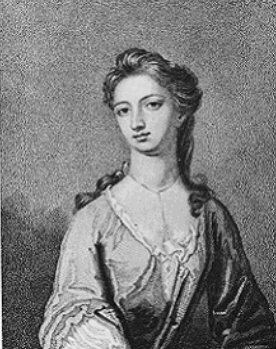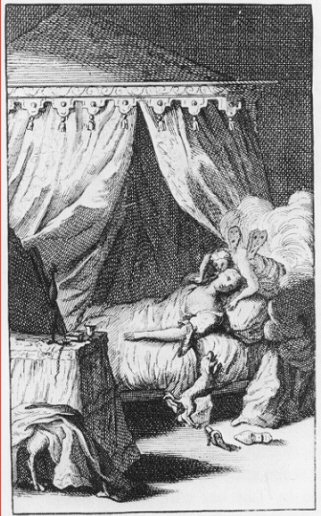|
English Department Homepage
English Literature I
Syllabus
The Rape of the Lock
by Alexander Pope
¡@
About
Alexander Pope
Summary
Writing Style
The Rape of the Lock (Powerpoint File)
The
Game of Ombre (Powerpoint File)
About Alexander Pope
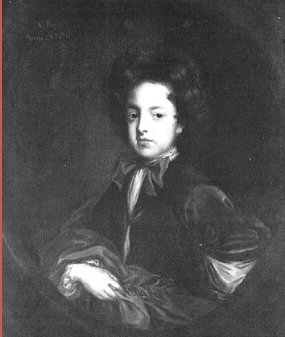 |
 |
Born in Catholic Family |
| ¡@ |
 Suffered Prejudice
Suffered Prejudice |
| ¡@ |
 Educated in Twyford
Educated in Twyford |
| ¡@ |
¡@ |
| ¡@ |
¡@ |
| ¡@ |
¡@ |
|
|
|
 |
Moved to Binfield
in 1700 |
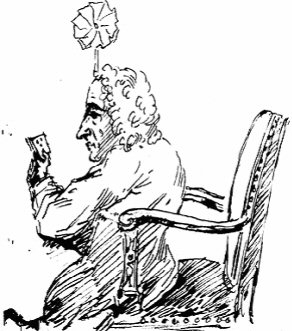
|
|
 Self-taught: "did nothing but read and write"
Self-taught: "did nothing but read and write" |
|
 Suffered from ill health: tuberculosis, asthma, and headaches
Suffered from ill health: tuberculosis, asthma, and headaches |
|
 Humpbacked and deformed
Humpbacked and deformed |
|
|
|
 |
Published An Essay on Criticism in 1711 |
| ¡@ |
 First
striking success as a poet First
striking success as a poet |
 |
Made
friends with Jonathan Swift and John Gay |
| ¡@ |
¡@ |
| ¡@ |
¡@ |
¡@ |
 |
Translated Iliad
and Odyssey into English |
 |
| ¡@ |
 The
first man to prove "Literature can raise writers." The
first man to prove "Literature can raise writers." |
 |
Published The
Dunciad in 1728 |
| ¡@ |
 Became
professional satirist Became
professional satirist |
| ¡@ |
 ¡§Sleepless themselves to give their readers sleep¡¨
¡§Sleepless themselves to give their readers sleep¡¨ |
| ¡@ |
Died on May 30,
1744 |
| ¡@ |
 The
"Age of Pope" ended The
"Age of Pope" ended |
| ¡@ |
¡@ |
Back to Top
Summary
¡@
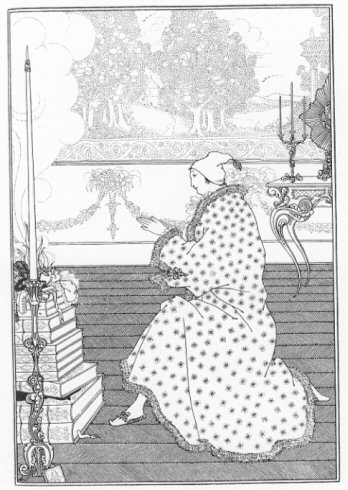 |
Canto 2
 The travel on the Thames river
The travel on the Thames river
 The prayer of the young adventurer Baron
The prayer of the young adventurer Baron
 The Sylphs' mission to "tend the Fair" ¡Xto protect Belinda
The Sylphs' mission to "tend the Fair" ¡Xto protect Belinda
Brillante¡Xthe earrings
Chrispissa¡Xthe locks
Ariel¡XShock, Belinda¡¦s lapdog
Momentilla¡Xthe watch
fifty chosen Sylphs¡Xthe petticoat
¡@ |
| ¡@ |
¡@ |
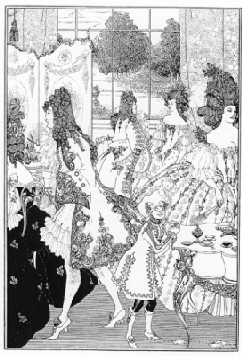 |
Canto 3
 The game of cards¡Xombre
The game of cards¡Xombre
¡@
 The rape of the lock
The rape of the lock
¡@
|
| ¡@ |
¡@ |
 |
Canto 4
 Belinda¡¦s Ill-Natured mood and Affection after the loss of the lock
Belinda¡¦s Ill-Natured mood and Affection after the loss of the lock
 Umbriel, the earthy gnome, descends to the Cave of Spleen
Umbriel, the earthy gnome, descends to the Cave of Spleen
 Thalestris¡¦ speech rouses the rage of Belinda
Thalestris¡¦ speech rouses the rage of Belinda
 Sir Plume bids in vain the payment of the lock
Sir Plume bids in vain the payment of the lock
¡@
|
| ¡@ |
¡@ |
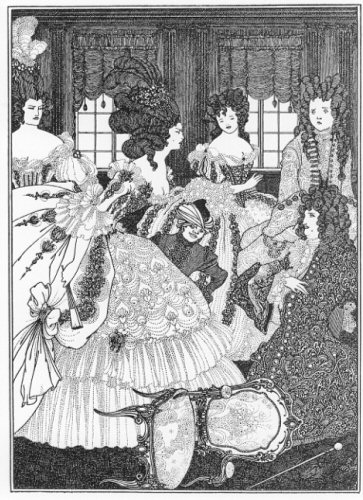 |
Canto 5
 Clarissa¡¦s speech
Clarissa¡¦s speech
 The battle of belles and beaux
The battle of belles and beaux
 The lock rises to the heaven and becomes a star
The lock rises to the heaven and becomes a star
¡@
|
| ¡@ |
¡@ |
|
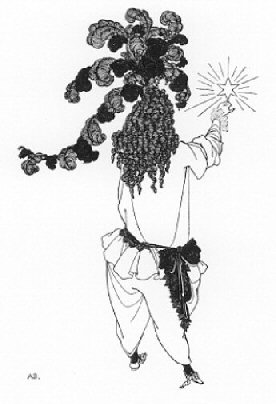 |
| ¡@ |
¡@ |
Back to
Top
Writing Style
Epic
 Epic,
the characteristic Epic,
the characteristic
 A long narrative poem
A long narrative poem
 Elevated, grand style
Elevated, grand style
 Great heroes and heroines
Great heroes and heroines
 The setting is vast in geographical range
The setting is vast in geographical range
 Supernatural power
Supernatural power
 Epic Conventions
Epic Conventions
 The theme is usually the adventure of a hero or a war.
The theme is usually the adventure of a hero or a war.
 Invocate the Muse¡¦s aid. (Calliope)
Invocate the Muse¡¦s aid. (Calliope)
 Ask epic question(s).
Ask epic question(s).
 Begin with in medias res.
Begin with in medias res.
 Use epithets and similes.
Use epithets and similes.
Gods' interference in human affairs.
Mock
epic
 A work designed to ridicule attitudes, style, or subject matter by
handling either an elevated subject in a trivial manner or a low subject
with mock dignity (Karl 30).
A work designed to ridicule attitudes, style, or subject matter by
handling either an elevated subject in a trivial manner or a low subject
with mock dignity (Karl 30).
 Renders a trivial subject ridiculous by treating it with the elaborate
(Karl 31).
Renders a trivial subject ridiculous by treating it with the elaborate
(Karl 31).
 Compare small things with something great.
Compare small things with something great.
Mock Epic
¡@
| Journey to the underworld
|
The Cave of Spleen (ill nature
of female hypochondriacs) (4. 1) |
| Sacrifice offering to gods
before an important war or journey |
Baron sacrifices his former
love-token. (2.35) |
| Battle |
Cliches, frowns and angry
glances, snuff and bodkin. ¡§So spoke the dame, ¡§ (5. 35).
The card game (Ombre). |
| Rape of the female chastity |
Rape of a lock of hair
|
Epic/Mock Epic ¡@
|
Traditional Epic |
The Rape of the Lock |
| Invoke the aid of
the muse: Calliope |
"Say what strange
motive, Goddess! Could compel" (1. 7) |
| Begin with in
medias res |
No |
| Gods are involved |
Spirits (Sylphs,
Gnomes, Nymphs¡K) are involved |
The Epic Question
| ¡§Among the gods,
who brought this quarrel on?¡¨(Iliad) |
1 What dire
offense from amorous causes springs,
What mighty contests rise from trivial things, ¡K
7 Say what strange motive, Goddess! Could compel
A well-bred lord to assault a gentle belle?
Oh, say what stranger cause, yet unexplored,
Could make a gentle belle reject a lord?
In tasks so bold can little men engage,
And in soft bosoms dwells such mighty rage? |
Homeric Simile
¡§Achilles, fast
in battle as a lion.¡¨
¡§Hera, whose arms are white as ivory.¡¨ |
¡§Quick
as her eyes¡¨ (2. 10), ¡§Bright
as the sun¡¨ (2. 13),
¡§Shrink his thin essence like a riveled
flower¡¨ (2. 132),
¡§And falls like thunder on the
prostrate Ace¡¨ (3. 98). |
Homeric Epithet
¡@
¡§man-killer Hector¡¨
¡§sharp-eyed Hermes¡¨
¡§Bolt-hurling Zeus¡¨
¡@ |
¡§Fair nymphs, and
well-dress'd youths around her shone¡¨
(2. 5)
¡§The long-contended honours of her
head¡¨ (4.140)
¡§Why round our coaches crowd the white-glov'd
beaux?¡¨ (5. 13). |
Structure
 Heroic couplet
Heroic couplet
---> Rhymed in every two lines.
 Iambic pentameter
Iambic pentameter
---> Ten syllables in each line
---> Alternate with stressed and unstressed
syllables
Back to Top |


